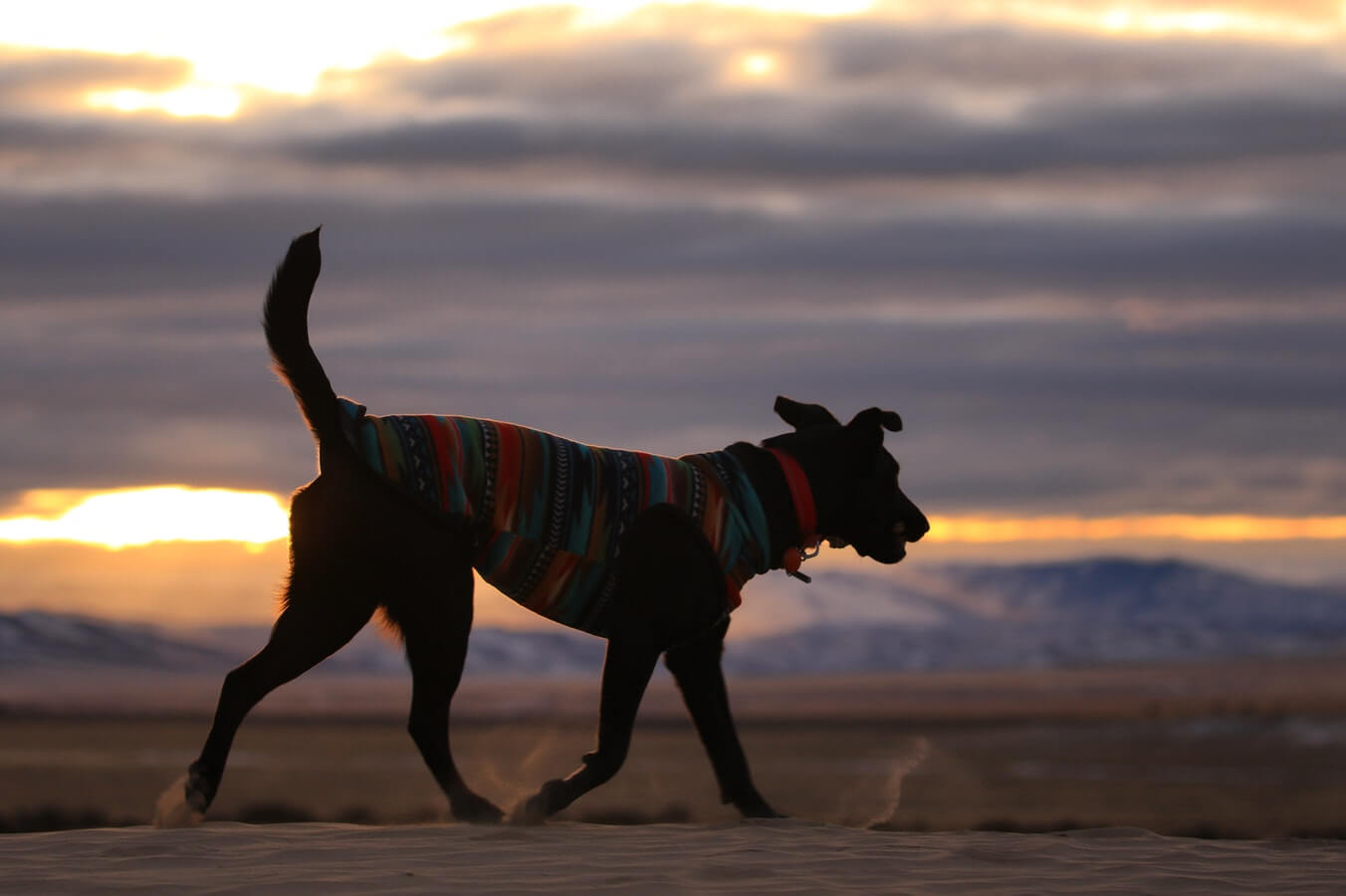
Many animals living in their natural habitat are nocturnal. Since your beloved pet dog was once an untamed animal, you might be wondering whether they are too. You may already know that a dog’s night vision is said to be very strong. Their species is also quite closely related to wild dogs. Including wolves and foxes, that are usually a lot more active during the night. Being so closely related species-wise, it seems logical that dogs could be nocturnal as well.
Table of Contents
Night-vision Enabling Eyes
A dog’s ability to see in the darkness hints at the fact that these extraordinary abilities were used to navigate their nocturnal life. The structure of a dog’s eye is what allows it the ability to see in the dark. Their night vision comes down to the mirror-like membranes at the back of their eyes.
These membranes allow light that has not been absorbed by the light-sensitive cells to rebound to the retina of the eye. This allows a dog’s eye to take in more light, distinguish shadows in the dark and ultimately see better. This physiological feature suggests that dogs are better suited to being active during the night.
They are still able to see clearly during daylight hours. However, the structure of their eyes appears to be designed for living nocturnally. This gives them an advantage over other animals. It is also one of the reasons they were active mainly at night.
Life Before Domestication
Before the dog species became domesticated, just like their closely-related wild dog species, they too needed to hunt for their food. Many dogs were used as hunting dogs due to their sense of smell and as mentioned, their eyesight.
During these times dogs would often venture out at dusk. This was the best time for hunting as there but just enough visibility to search for their prey. The low visibility also made it easier to avoid predators. Hunting for prey during the night also gave dogs an advantage over other animals. This was especially with regards to hunting for the same prey that wasn’t active during the night. Living in a time where food sources were scarce, and the competition was high, this was a significant advantage.
Is That Still The Case?
As you know dogs aren’t wild animals in today’s world. However just as hiding a bone in the yard seems to be built into their DNA, the nocturnal behavior is argued to be the same. Dogs most certainly were nocturnal, and those nightly hunting instincts are engrained within the dog. As research shows, many dogs display such behavior at some point in their lives. While there may not seem to be a logical reason behind it, it’s merely a part of their nature.
It is also important to note however that dogs have been living beside humans for centuries. Just as all other species evolve and experience changes over time, dogs are no exception. Having become accustomed to human’s behavior, the dog species have adapted over time to be more active during the day.
The Weather Plays A Role
Another factor at play that affects your dog’s behavior and the routine is the weather. Many pet owners have agreed that during the warmer months, their dogs seem to display nocturnal behavior.
Dogs have their own ways of cooling down during the hotter months. However, research suggests that the heat is not something they particularly enjoy. You may have noticed that during summer months, your pet will start sleeping a few more hours during the day. Particularly, if you have a dog that spends the majority of its time outside.
This again goes back to behavior before dogs became domestic animals. The temperature from dusk until dawn doesn’t fluctuate a great deal between summer and winter. This is in comparison to the temperature during the day. This, combined with their preference to hunt during the night, lead to dog’s preferring to be active when the sun is not out.
This time of day generally was a lot cooler, and it made the activities dogs did, such as hunting, more efficient.
Dogs Can Adapt
Many pets are now living in the homes of their owners. As well as that, the majority of homes across the US are equipped with air conditioning and other features. These work to make the summer months cooler, such as swimming pools. These also work to keep dogs cool and allow them to remain active alongside their owners during the day. As mentioned, dogs as a species have been able to evolve and adapt to life living with humans. Also, research shows that generally dogs and cats are able and willing to adapt to the lifestyle and schedule of their owners. Dogs have a tendency to adjust faster than cats.
Your pet dog was nocturnal in its pre-human days, and may still occasionally exabit nocturnal behavior. However, due to their ability to quickly adapt to any situation they are placed in, their behavior is easily changed.
Taking Into Account
Their Current Behaviour Research and evidence proves that dogs were designed to be nocturnal. However, most aren’t living that way in this day and age. Since they have evolved and can fit into the sleeping patterns of their owners, it’s arguable that dogs are not nocturnal. As a species, they have moved away from displaying nocturnal behavior, and dogs have become diurnal. This means they are active during the day. Just as any other species can evolve and change, dogs have proved that they are no different.
Past information and research are helpful in showing us the way in which dogs used to exist and explain their previous behavior. The past information is used as a roadmap rather than a rule. And it’s clear that dogs have migrated from being nocturnal to diurnal.
There are some exceptions to this. As stray dogs or dogs living with owners who are required to work during the night will display different behavior. One thing is clear, however. Dogs living with owners will adapt to fit the lifestyle their owners live, which for the most part, is not nocturnal.
Conclusion
Dogs were once nocturnal which suited their hunting behavior and allowed them to use their special night vision ability. Once they became domesticated and adapted to the hours in which their owners were active, their nocturnal behavior changed. They are therefore no longer considered a nocturnal species.
You May Also Interested In:
Share this:
- Click to share on Twitter (Opens in new window)
- Click to share on Facebook (Opens in new window)
- Click to share on Tumblr (Opens in new window)
- Click to share on Pinterest (Opens in new window)
- Click to share on Reddit (Opens in new window)
- Click to share on Telegram (Opens in new window)
- Click to share on WhatsApp (Opens in new window)
- Click to print (Opens in new window)
